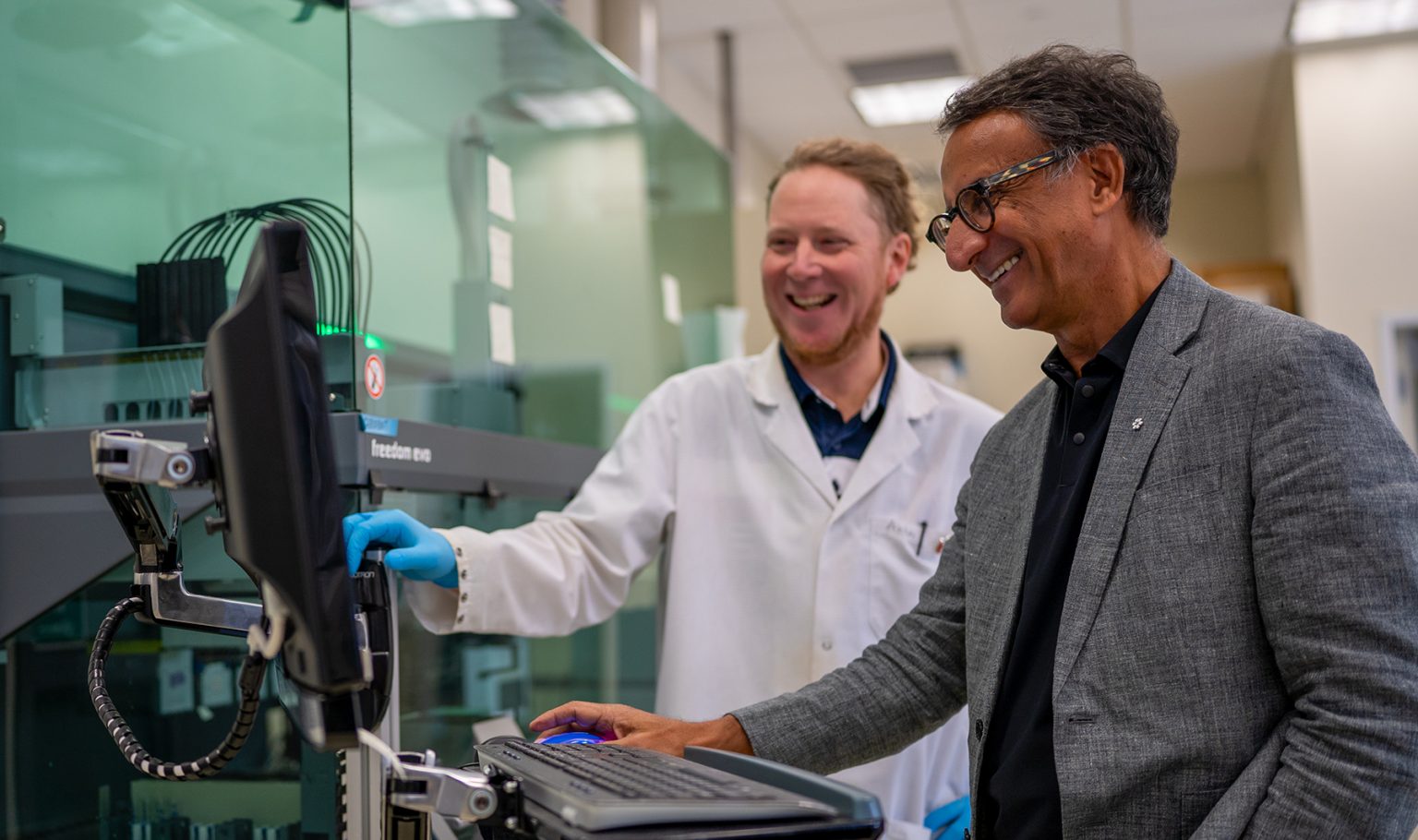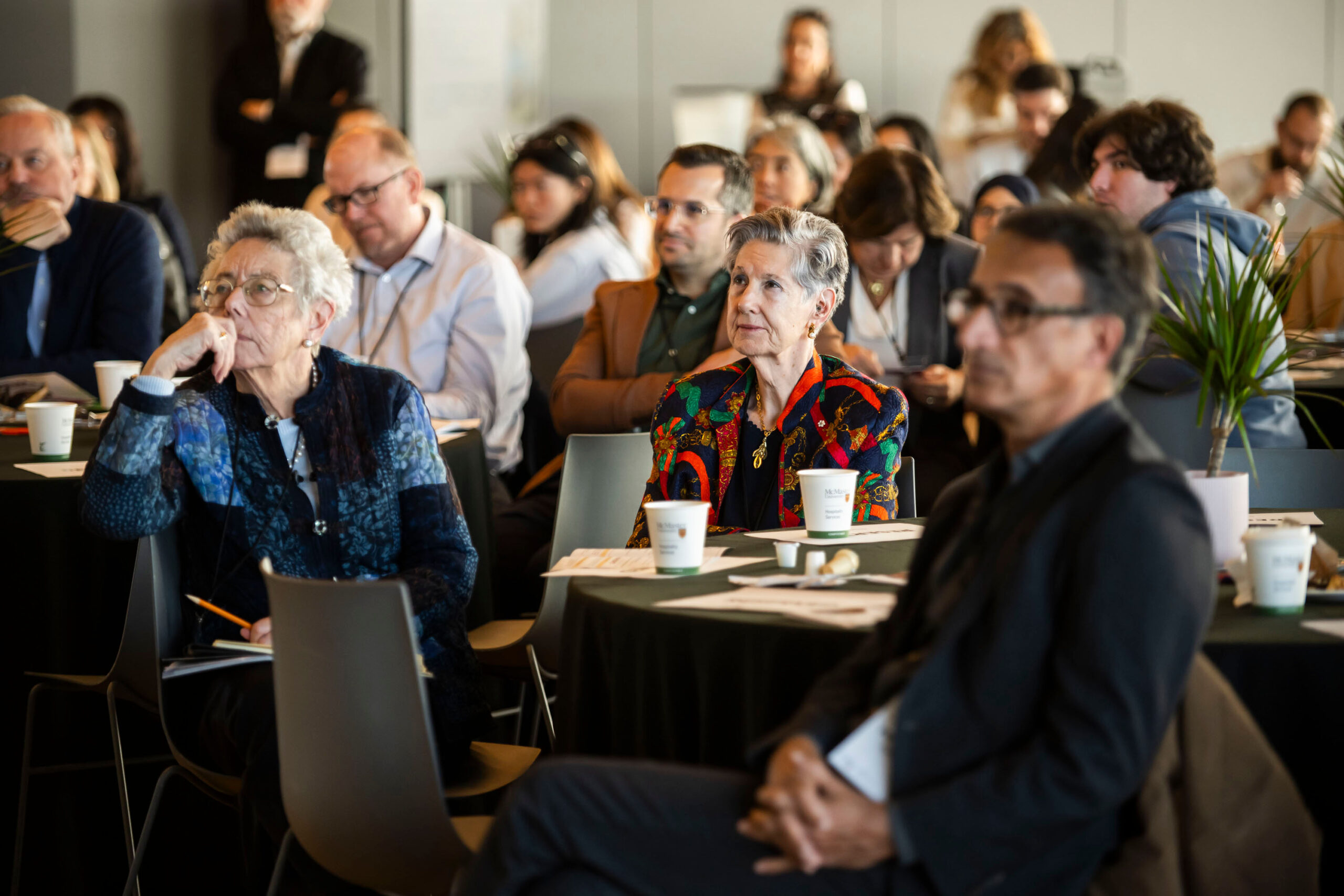MIRA is excited to launch its 2024 Graduate Scholarship Program.
The MIRA Graduate Scholarship Program offers scholarships at the Master’s and PhD level to applicants proposing interdisciplinary research on aging that seeks to involve and benefit end users and stakeholders, who may include, but are not limited to: older adults, caregivers, clinicians, health care practitioners, industry partners, policy makers, the media, educators and learners, and academics in other disciplines. Research projects supported by these scholarships should aim to develop the capacity of future leaders in aging research and generate evidence that contributes to the well-being of older adults. Applications will be evaluated by an interdisciplinary committee, which will consider the strength of the research proposal, value of the interdisciplinary approach and supervisory committee, candidate’s academic and research potential as indicated by their CV and cover letter, and the use of design thinking and/or stakeholder engagement.
See the full MIRA Graduate Scholarship Program callMIRA Graduate Scholarship Program
Application deadline
- January 22, 2024, 4 p.m. ET
Funding available
- Master’s: $15,000 over one year
- PhD: $18,000 over one year (MIRA | sMAP PhD Scholarships are $36,000 over two years)
Scholarship co-funding partners
New for 2024, MIRA has partnered with McMaster research centres and institutes to further expand our collective impact and build capacity among McMaster trainees, see below for a list of our co-funding partners and their focus areas.
All applicants will be considered for a MIRA Scholarship in Aging Research. Applications that focus on aging and the mandate of any of the below co-funding partners may be considered for co-funded scholarships.
Labarge Centre for Mobility in Aging (LCMA)
Funded by a generous gift from Suzanne Labarge, the LCMA supports interdisciplinary collaboration in aging research on the broad topic of mobility in aging, which may include: understanding and defining mobility in aging; maintaining and restoring mobility in aging; and environmental facilitators and barriers that influence mobility in aging. Applicants may be considered for funding through the LCMA if their research proposal focuses on aging and mobility, where mobility is defined to include physical and community aspects of mobility, execution of daily activities and participation in society.
Smart Mobility for Aging Populations (sMAP)
Applicants are invited to submit a research proposal aligned with the goals and research priorities of the McMaster sMAP program. The candidate’s research must focus on interdisciplinary, impact-driven approaches to aging, mobility and the development and application of smart technologies, including the following priority research areas: hardware-software co-design, multi-modal data analytics, hybrid modelling to improve mobility or care; understanding the trajectory of mobility status in health and disease from function to impairment; and development of solutions for continuous monitoring, assessing and/or maintaining and restoring of mobility. If successful, sMAP scholarship recipients are expected to complete the required training modules in for sMAP program (more details can be found here).
McMaster Digital Transformation Research Centre (MDTRC)
The MDTRC is designed as a knowledge hub to engage in three primary mandates focused on digital transformation: collaborative multidisciplinary research, outreach to academic and non-academic partners, training and education, as well as the development of custom training and educational content. MDTRC is committed to understanding the digital revolution that is transforming every aspect of our personal, social, and professional lives. Leveraging behavioural and neurophysiological techniques, the timely and important cutting-edge research initiatives at MDTRC will lead to a fundamental shift in understanding of the ever[1]evolving digital revolution and its challenges and opportunities, with far reaching implications for managerial practice across sectors and society at large.
Firestone Institute for Respiratory Health (FIRH)
The intent of the FIRH is to provide optimal patient care through clinical practice, translational research, and the training of health care professionals. Clinical, research and educational activities are integrated and largely collaborative within the FIRH. Research is wide-ranging, from basic studies of animal models of lung disease (asthma, chronic obstructive pulmonary disease, fibrosis) to clinical trials and epidemiological studies. Specialized facilities have been established at the FIRH, such as the Sputum Research Laboratory and the Aerosol Research Laboratory. Scientists at the FIRH are performing studies of bone marrow progenitor cells, airway peptide challenges, electrophysiological studies of airway smooth muscle cells, chronic allergen challenges, preclinical models of lung injury and repair, and more.
Micheal G. DeGroote Institute for Pain Research and Care (IPRC)
The IPRC seeks to fund research and initiatives that will ultimately improve the quality of life for those living with chronic pain. One area of concern is the development of persistent pain after surgery, which is particularly common after cardiac, breast cancer and orthopedic surgery. The IPRC explores causes of chronic post-surgical pain, developing new strategies for its prevention and innovative care for patients. The Institute was made possible as a result of the DeGroote family gift.
Michael G. DeGroote Institute for Infectious Disease Research (IIDR)
Since its inception in 2007 through an unprecedented gift from Hamilton businessman Michael G. DeGroote, the IIDR is committed to delivering new knowledge and solutions to some of the most pressing challenges in infectious disease. Collaborative research spans the lab and the clinic, and a variety of disciplines ranging from medicine and biochemistry to mathematics, anthropology, and engineering. The breadth of research initiatives at the IIDR is large, reflecting the complexity of global challenges in infectious disease research and clinical practice. Further, the IIDR continually advances its research objectives to align with the evolving infectious disease landscape. Such initiatives include: microbial and antimicrobial research; vaccines and antivirals; host-pathogen interaction research; diagnostics; and research into new technologies.


